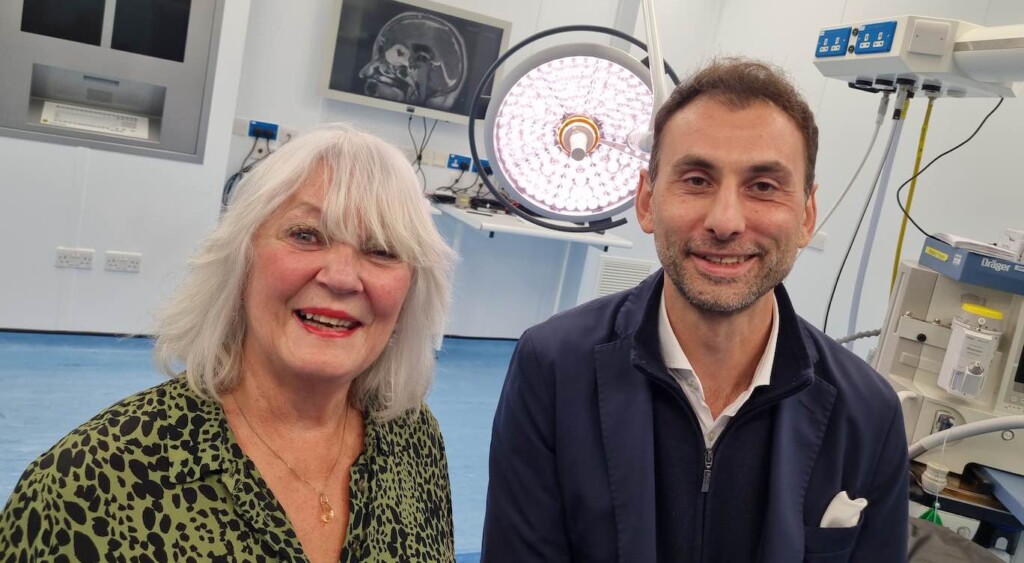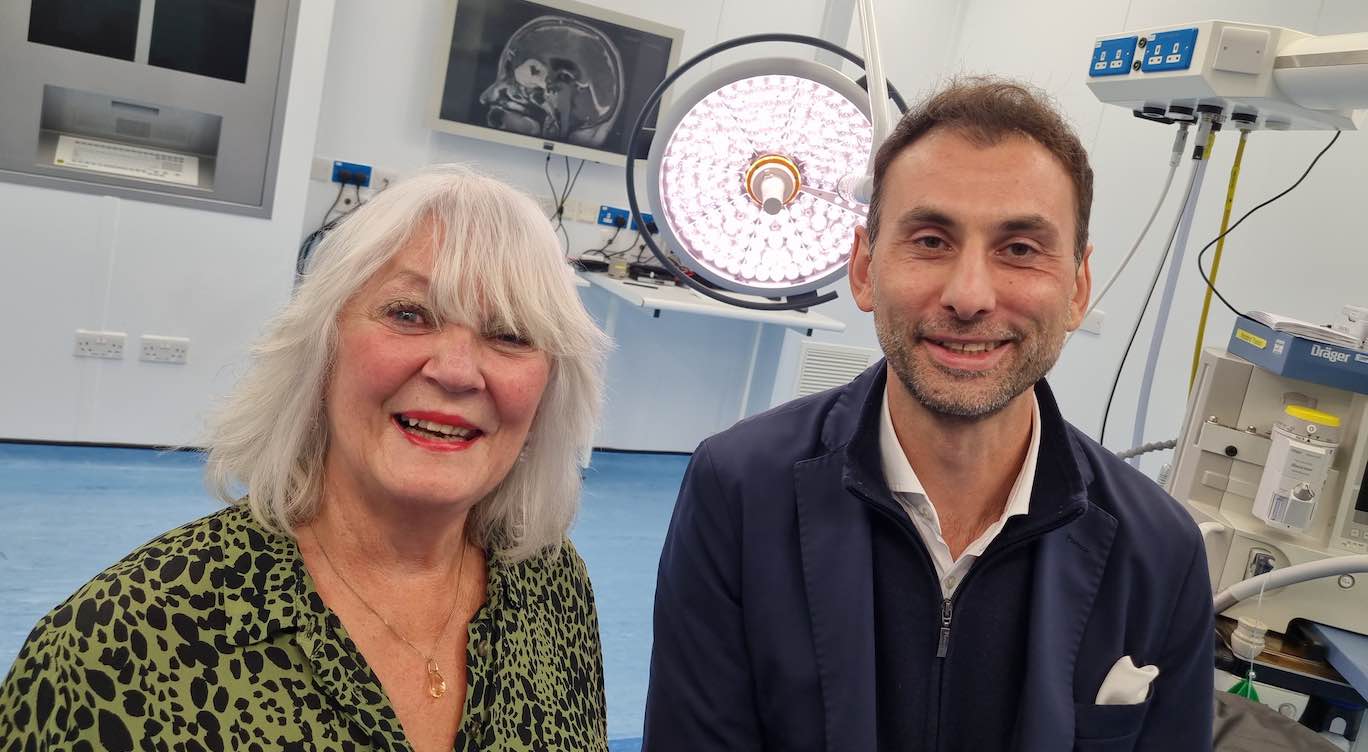
A 75-year-old woman has become the first person in the world to have a brain tumor removed through an eyebrow incision, according to the UK’s National Health Service (NHS).
The new procedure not only slashes the hours needed on the operating table, but patient recovery time, as well.
Doreen Adams underwent the unique procedure after a previous craniotomy to remove the tumor produced an unsuccessful result.
“The difference in the two surgeries is night and day,” reported Adams, who was able to leave the hospital in Scotland two days after the surgery.
The operation was carried out by pioneering NHS surgeon Anastasios Giamouriadis in Grampian, Scotland. He adapted an already existing technique and used it to remove tumor growth, a surgery that leaves patients with only a small scar and a temporary black eye.
The procedure also allows for surgeons to carry out the operation more quickly than a traditional craniotomy, which removes parts of the skull to expose the brain. The new method takes just three hours, compared to the craniotomy’s required 8-10.
“The recovery after the craniotomy was tough. It took a lot of time,” said the Aberdeen woman who was refereed to Dr. Giamouriadis after the surgery unfortunately did not solve the problem.
In contrast, her recovery following the surgery at ARI (the main teaching hospital in Grampian associated with the University of Aberdeen) was “much, much quicker”.
“I was out of hospital two days later and back to my normal life almost immediately.”
ASTOUNDING: Chinese Doctor Removes Patient’s Lung Tumor Using Robot from 3,000 Miles Away
Dr. Giamouriadis didn’t invent this type of surgery, but he modified it to give himself more space to work
“It is allowing me to remove very big brain tumors,” he said in an NHS statement. “We are not aware of anywhere else in the world that has managed to remove tumors as large as we have.”
“It’s a game-changer and much less invasive. Traditionally people would be left with scars across their full forehead, we avoid that with this method.
“Before we needed to do a craniotomy to give us full access. That takes a very long time. To get to the tumor takes up to three hours alone.”
His technique—which has been endorsed by British Neurological Society and European Association of Neurosurgical Societies—is also beneficial for the surgeon.
“The very tricky part with these operations is at the very end. You are dealing with tiny vessels on the optic nerves, like hairs. You can see them only under very high magnification.
TRANSPLANT MIRACLE: New Tech Revives ‘Unusable’ Organs, as 10 Successful Transplants Used Kidneys That Are Normally Discarded
“When you are operating and you are nine hours in, surgeons can be understandably tired, so our way reduces the risk of error by reducing the operation length.
“With this method you are at the tumor in 30-40 minutes and, when you’re doing the last part of the operation, the surgeon is still fresh.”
Patients who have undergone the operation—known as the Modified Eyebrow Keyhole SupraOrbital Approach for Brain tumors—have seen remarkable recoveries, with many returning to normal life just days later.
“After the traditional method patients are kept asleep, we wake them up very slowly they require intensive care for a good few days. They then spend quite a few weeks on a ward and then usually need rehab,” he said.
MEDICAL FIRST: 13-year-old Successfully Undergoes World-First Treatment to Cure Rarer-Than-Rare ‘Wild Syndrome’
“With this technique patients wake up straight away; they sometimes go home the day after the operation, where we know patients have quicker and better recoveries.
“That’s big for the patient, but also for the hospital in terms of maximizing capacity. The patient goes home the next day, with a black eye. In a few months they have a barely visible scar.”
Doreen adds, “To think you can have brain surgery and be back to normal within a few days is quite incredible.
SHARE THE INCREDIBLE INNOVATION With Friends on Social Media Who Need Some Good News….




















